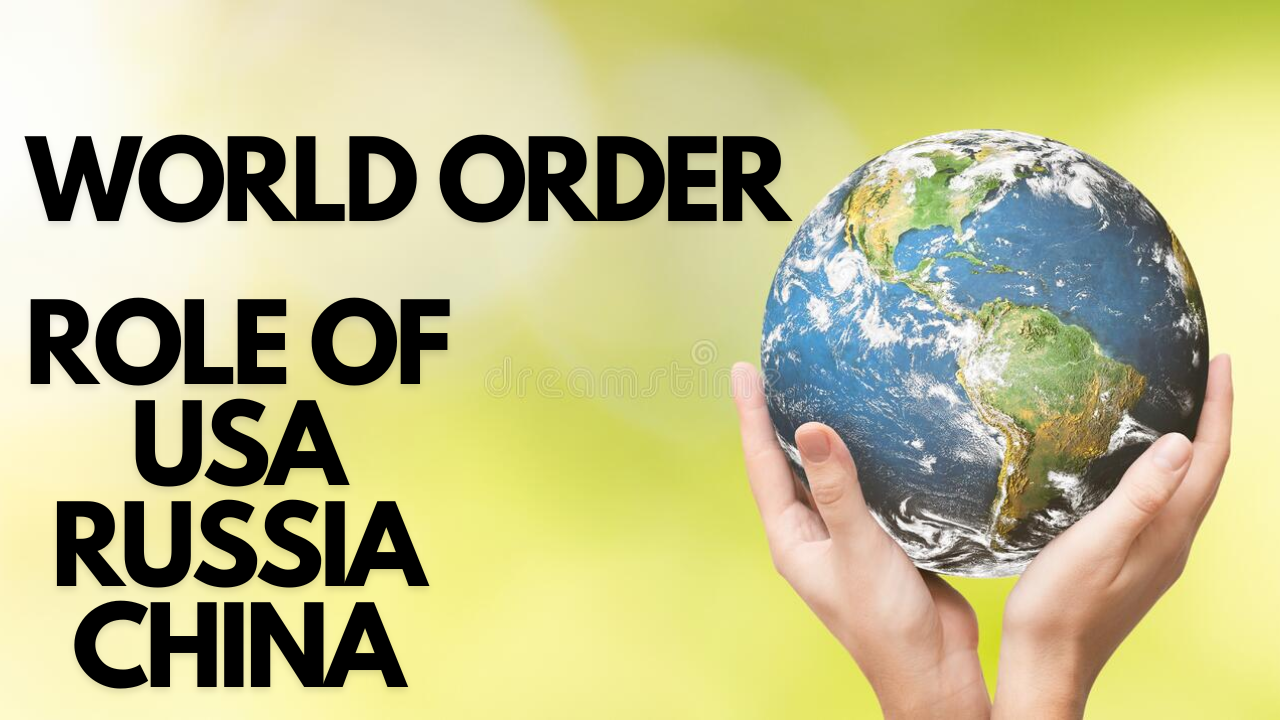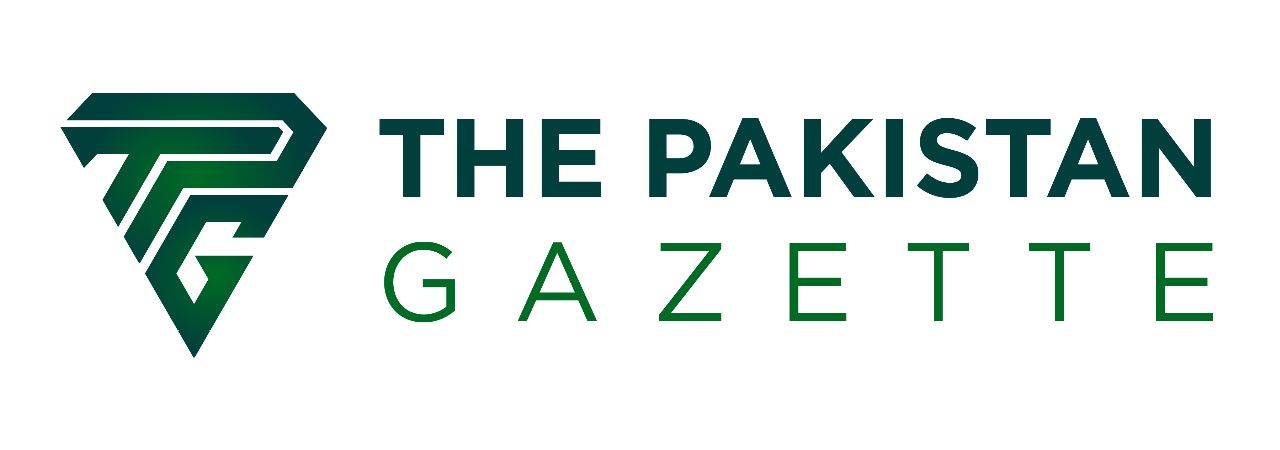
World Order – Role of USA, Russia and China
What is World Order
“World Order” refers to the way in which the world’s nations, organizations, and other actors interact with each other to maintain stability and resolve conflicts on a global scale. It encompasses the rules, norms, and institutions that have been established to govern relations between states, such as international law, the United Nations, and various treaties and agreements.
The concept of world order has evolved over time, and different actors have sought to shape it in different ways. Some have advocated for a more cooperative and integrated approach, while others have promoted a more confrontational and competitive approach. The balance of power between different states and regions has also played a significant role in shaping world order.
The idea of a stable and peaceful world order is a major goal of international relations, and efforts to achieve it often involve negotiations, diplomacy, and the use of force when necessary. However, achieving a stable world order is a complex and ongoing process, and there are many challenges and obstacles that must be overcome.

Role of the United States of America in World Order
One of the key ways in which the United States has contributed to the world order is through the establishment and support of various international institutions, such as the United Nations, the World Bank, and the International Monetary Fund. These organizations have helped to promote cooperation and collaboration between nations, and have provided mechanisms for resolving conflicts and addressing global challenges such as climate change, poverty, and terrorism.
In addition, the United States has been a leader in promoting democratic values and human rights around the world and has often used its economic and military power to support these efforts. The United States has also played a major role in maintaining global security, through its alliances with other countries and its military presence in various parts of the world.
However, the role of the United States in shaping the world order has been a subject of debate in recent years, with some arguing that its leadership and influence have declined in the face of rising powers such as China and Russia, as well as growing domestic political polarization and isolationist tendencies. Nonetheless, the United States remains a major player in international affairs, and its actions and policies continue to have a significant impact on the world order.
Role of Russia in World Order
Russia has historically played an important role in the world order as a major world power with significant political, economic, and military influence. Its role in shaping the world order has evolved over time, reflecting changes in its own domestic and foreign policies, as well as broader geopolitical shifts.
During the Cold War, Russia (then the Soviet Union) was one of the two superpowers, along with the United States, that dominated global affairs. The rivalry between these two powers shaped the world order and led to the creation of various international institutions, such as the United Nations and the International Atomic Energy Agency, that sought to manage the competition and prevent the outbreak of a global conflict.
After the collapse of the Soviet Union in 1991, Russia underwent significant changes, both domestically and in its foreign policy. It transitioned to a market-based economy, and sought to establish more cooperative relationships with other nations, while still asserting its own interests and maintaining its status as a major power.
In recent years, Russia’s role in the world order has been characterized by a more assertive and confrontational foreign policy, including its annexation of Crimea in 2014 and its military intervention in Syria in 2015 and recently in Ukraine. However, Russia has its own justification which is to protect its country from NATO’s expansionism. This has led to tensions with the West and with other countries in the region and has raised questions about Russia’s commitment to the principles of the international order, including respect for territorial integrity, democratic values, and human rights.
Despite these challenges, Russia remains an important player in global affairs, with significant influence in regions such as the Middle East, Central Asia, and Eastern Europe. Its role in shaping the world order will continue to be shaped by a complex set of factors, including its own domestic politics, the shifting balance of power among major world powers, and broader global trends such as economic interdependence and technological change.
Role of China in World Order
In terms of economics, China has become an important driver of global growth, and its participation in international trade and investment has been significant. China has also sought to establish new international institutions, such as the Asian Infrastructure Investment Bank (AIIB), and has sought to play a greater role in existing institutions, such as the World Trade Organization (WTO). In terms of politics, China has become increasingly assertive in its foreign policy, as evidenced by its territorial disputes in the South China Sea, and its disputes with Taiwan. China has also been seeking to expand its global influence through its Belt and Road Initiative, which seeks to increase economic and infrastructure connectivity between China and other countries.
However, China’s rise has also raised concerns among other countries, particularly the United States, about the potential implications for the existing world order. The role of China in the world order will continue to be shaped by a range of factors, including its domestic politics, its relationships with other major world powers, and broader global trends such as economic interdependence, technological change, and the impact of climate change.
What are the Major Threats to World Order?
Nuclear weapons: The proliferation of nuclear weapons and the potential for their use pose a significant threat to world order. The possibility of nuclear conflict or the use of nuclear weapons by terrorist groups or rogue states could have catastrophic consequences for the world.
Terrorism: The threat of terrorism has increased in recent years, as extremist groups seek to spread their ideologies and engage in violent attacks against civilians. These attacks can destabilize entire regions, and have a major impact on global security.
Global pandemics: The spread of infectious diseases, such as COVID-19, poses a significant threat to world order. These pandemics can disrupt global trade and travel, strain healthcare systems, and lead to social and economic instability.
Climate change: The impact of climate change, including rising sea levels, increased frequency and intensity of natural disasters, and food and water scarcity, poses a significant threat to world order. These challenges can lead to displacement, conflict, and the breakdown of governance structures.
Cybersecurity: The increasing reliance on digital technologies and the rise of cyber attacks pose a major threat to world order. These attacks can disrupt critical infrastructure, steal sensitive information, and destabilize economies.
Economic inequality: The widening gap between rich and poor, both within and between countries, can lead to social and political instability, which can have significant implications for global security.
These threats are complex and interrelated and require coordinated efforts by the international community to address them effectively.
Admin at The Pakistan Gazette

